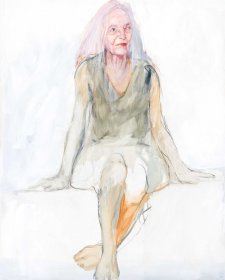Francis Adams Iredale (1867–1926), cricketer and journalist, was born in the inner Sydney suburb of Surry Hills, the son of an ironmonger and his Irish-born wife. At seventeen, he was selected in a junior side to take on the visiting English XI; and at 21, after several seasons of club cricket, he made his debut for New South Wales. A tall, right-handed batsman who ‘combined sound defence with good hitting’, Iredale made 81 runs in his first Test match appearance, in Sydney in 1894-95, and later in the same series scored 140 against England at the Adelaide Oval. He was a member of the Australian sides that toured England in 1896 and 1899 and on both of these tours he made more than 1000 runs, in 1896 scoring four consecutive centuries including one in the Test match at Old Trafford. He retired from Test cricket at the conclusion of the 1899 tour having, in 14 matches against England, scored 807 runs at an average of 36.68. He continued playing with New South Wales and at club level until the 1901-02 season, finishing his first class career with a total of 6 795 runs and a high score of 196. After retiring from cricket, he served as secretary of the New South Wales Cricket Association and as a selector for the state and national sides. He also contributed articles to the London Sportsman and in 1920 published a book, 33 Years of Cricket. Iredale died from tuberculosis in April 1926, survived by his wife and two children.
Collection: National Portrait Gallery
Purchased with funds provided by L Gordon Darling AC CMG 2014
L Gordon Darling AC CMG (38 portraits supported)



On one level The Companion talks about the most famous and frontline Australians, but on another it tells us about ourselves.



The Darling Prize is a new biennial prize for Australian portrait painters, painting Australian sitters. The winner receives a cash prize of $75,000.



This exhibition showcases portraits acquired through the generosity of the National Portrait Gallery’s Founding Patrons, L Gordon Darling AC CMG and Marilyn Darling AC.